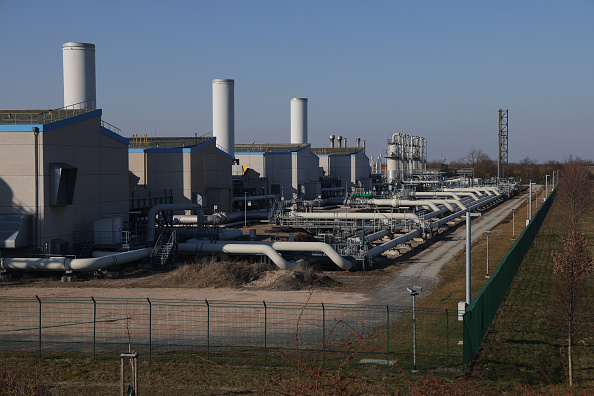UK economy flirting with recession amid escalating inflation

Escalating inflation is threatening to throw the UK economy into dangerously close recession territory, reveals two closely watched surveys.
Businesses are struggling under the weight of swelling costs triggered by soaring energy bills, prompting them to launch the quickest price hike cycle on record, according to the British Chambers of Commerce (BCC).
Around two in three firms intend to raise prices in the coming months, the highest proportion since BCC started tracking the data.
Separate research by the business group the Institute of Directors (IoD) reveals over half of companies are being crimped by historically high gas and electricity bills.
Energy prices have whipsawed during the last 10 months, driven by scarce supplies running into high demand as economies around the world emerge from pandemic restrictions.
However, Russia’s invasion of Ukraine has sent energy prices skyrocketing even higher by stoking fears over the security of oil and gas flows.
Last month, oil prices briefly hit $139 a barrel, the highest level since 2018, while UK gas futures reached a record high.
Britain’s top forecaster, the Office for Budget Responsibility (OBR), warned last week UK economic growth will come in much lower than expected as a result of inflation averaging over seven per cent over the course of 2022.
Households are expected to cut spending to offset the worst drop in living standards since 1956.
Government policy is also heaping pressure on businesses’ balance sheets and directly stoking Britain’s cost of living squeeze, the BCC said.
“The level of inflationary pressures has soared to record levels and we are now truly in uncharted territory. Firms cite cost increases coming at them from all angles, ranging from energy bills to raw material prices and the imminent [1.25 percentage point] rise in national insurance,” Shevaun Haviland, director general of the BCC, said.
“We need to be absolutely clear: this cost of doing business crisis is squeezing firms’ finances, driving further increases in prices and directly fuelling the cost-of-living crisis,” she added.
Inflation in the UK is already running at 30-year high of 6.2 per cent, but is expected to surge even higher as the year develops.
The OBR thinks it will peak near nine per cent. Some economists have pencilled in a double-digit peak in October, driven by the energy watchdog hiking the cap on bills again to account for higher wholesale energy prices caused by the Russia-Ukraine war.
Analysts have leaned on expectations that households will deploy the warchest of pandemic-induced savings to maintain spending levels throughout the year, holding up economic growth.
However, a severe hit to consumer confidence caused by the Kremlin’s invasion of Ukraine, tax hikes, interest rate rises and swelling energy bills may incentivise households to hold off on drawing down their rainy day funds.
“No one should rule out a decline in households’ real expenditure this year that could drag the overall economy into a recession,” Samuel Tombs, chief UK economist at Pantheon Macroeconomics, said.